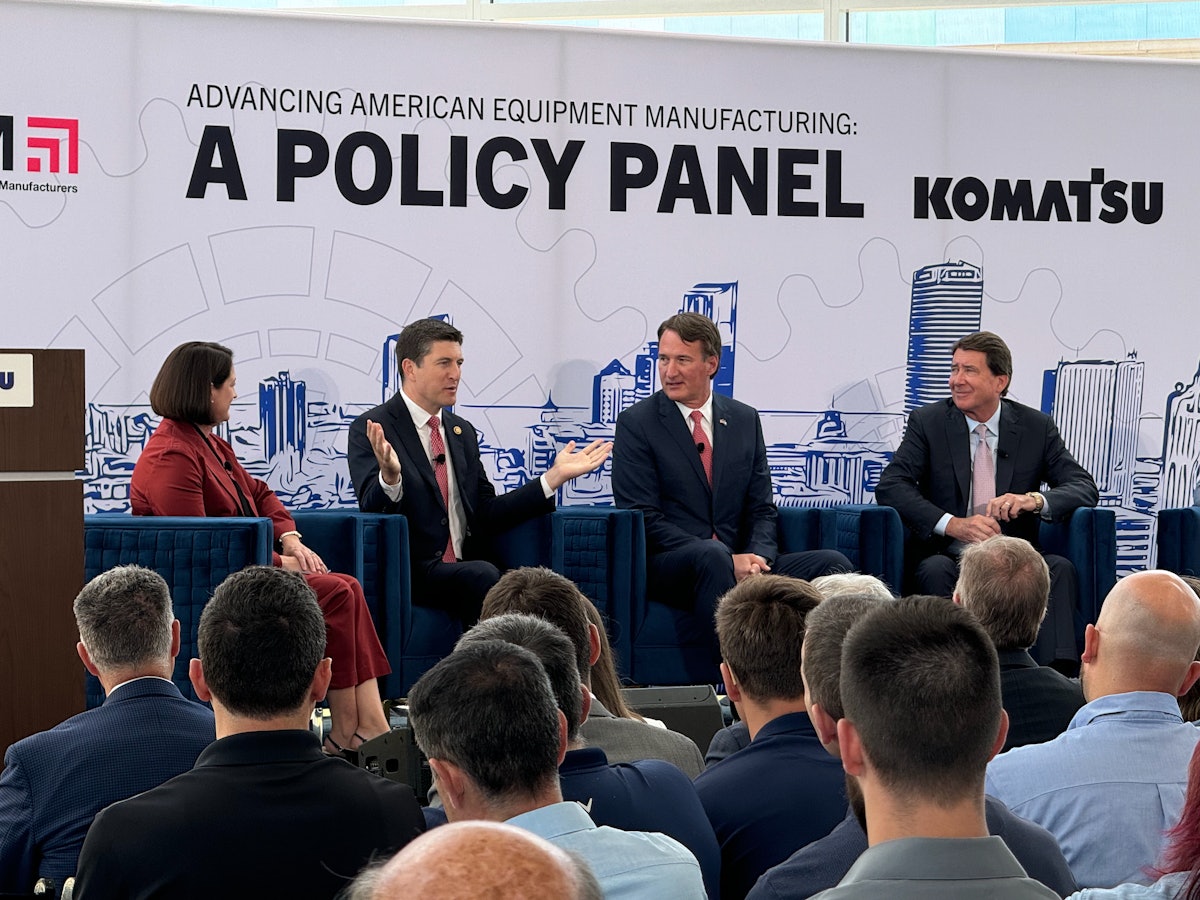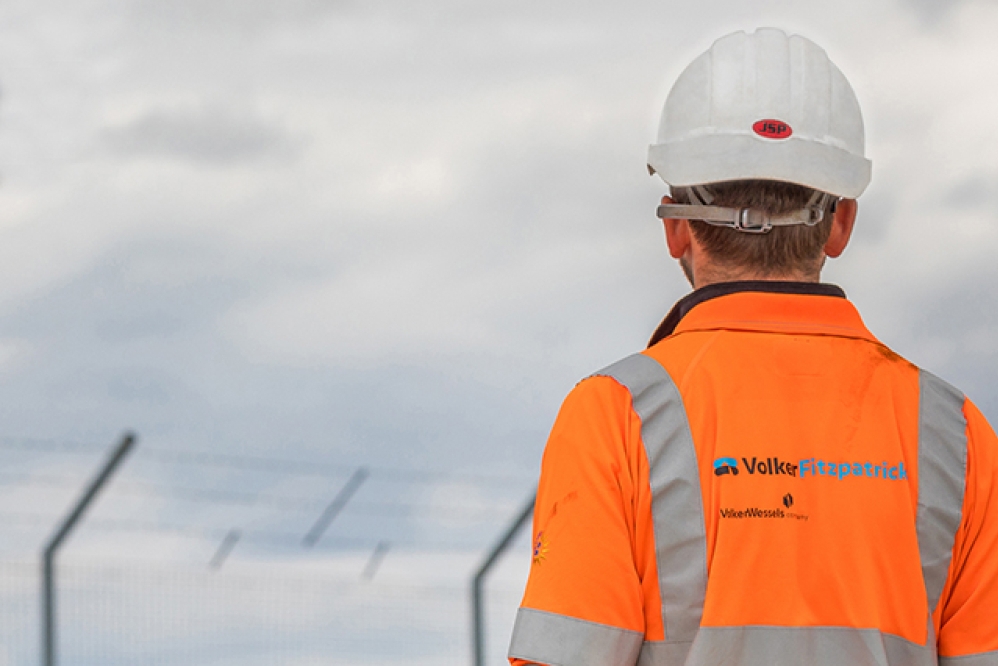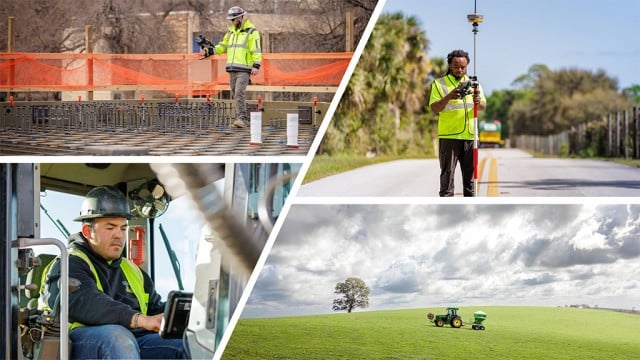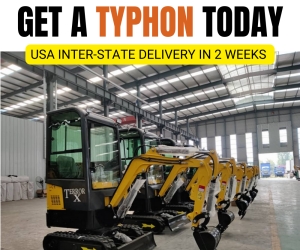Lawmakers Talk Manufacturing-Friendly Policies at AEM Panel
Against the backdrop of the Republican National Convention, lawmakers sat down in Milwaukee to discuss how to boost the equipment...

A governor and two legislators sat down in Milwaukee earlier this week to discuss how policy was impacting the construction equipment manufacturing industry.
In a panel hosted by the Association of Equipment Manufacturers (AEM) at Komatsu’s South Harbor campus, three Republican politicians — Governor Glenn Youngkin of Virginia; Senator Bill Hagerty of Tennessee; and Representative Bryan Steil of Wisconsin — discussed pressing issues facing the manufacturing sector and what can be done to boost the industry.
Tackling Overregulation
A consistent theme throughout the discussion was making it easier for manufacturers to grow their businesses. Youngkin said part of the recent growth seen in Virginia’s manufacturing sector — CNBC recently labeled Virginia the top U.S. in which to do business — was simply making the state “business friendly.”
“We've been reducing the cost of new business, we've been streamlining regulations and cutting red tape,” he said. “…and we've had $5 billion of tax relief. I want Virginians to stay in Virginia, and I want people to come. That allows us to build the best workforce in America.”
Senator Hagerty cited overregulation as a “huge problem” that needed to be addressed and said states like Tennessee, Wisconsin and Virginia are doing this to create “environments that are conducive to business growth.”
“The way the regulations that we've seen unfold without any sort of cost benefit analysis is something that has to be looked at very, very carefully,” Hagerty said. “I've seen the benefit of that when I served President Trump's administration a few years past. Not only did we go through an impressive and important Tax Cuts and Jobs Act — that made a big difference. But I think even more so, there was a regulatory overhaul that really helped take out some of the sclerosis in the regulatory system and put us in a position where we can be competitive yet again.”
Recent Supreme Court action limiting the ability of federal agencies to interpret laws they administer has given legislators a new opportunity to promote business-friendly environments, added Steil.
“We as legislators, in particular in the Senate and in the House, have a huge opportunity to right size,” he said. “We've seen, for example, the EPA really run roughshod over congressional intent. The Supreme Court is finally shifting that back to elected officials, to have a say in that matter. Grabbing that lifeline that the Supreme Court has given elected officials in the House and Senate is going to be absolutely essential as we go forward.
“Because the burden that is placed on businesses, from a regulatory standpoint, is stifling. And in particular, in a period of time when inflation is high, when costs are going up and it's harder for families to afford the things that they need, we need to be focused in on Washington on policies that bring cost and inflation down. And the number one focus of that should be right sizing a lot of the regulatory state.”
Attracting Outside Investments
Ensuring foreign companies have access to a reliable power supply, according to Youngkin, plays a significant role in attracting outside investment.
“I was in Europe, just about six weeks ago, and as I traveled around and I met with companies, there were three realities,” said Youngkin. “One, they knew they wanted to be here, they wanted to be in the United States. They also recognized that their supply chain needed to be reoriented away from China. And they needed trusted suppliers, Asian companies like [in] South Korea and Japan, and Taiwan, and Australia, and of course, Thailand. But then, finally, they need to go someplace where they can have a great workforce and a trusted, reliable, affordable and increasingly clean power supply. We can do all of this. But the key thing is we can’t get hung up on only doing part of it — we've got to do all of it.”
Steil pointed to tax cuts as a way to attract outside manufacturing investments to U.S. states.
“We could look at the Trump-Ryan tax cuts, that had a huge impact, that will be on the table as we look out to next year in post-election,” Steil said. “And in particular, we think about two pieces of that: the R&D tax credit and accelerated depreciation. In a state like Wisconsin — which is a capital intensive state, a heavy manufacturing state — that ability for accelerated depreciation has real world implications on the decision of global businesses in particular to be investing in the United States.”
Connecting with a Prospective Workforce
Steil also pointed out that states have an opportunity to advance their manufacturing industry by making sure people are educated about what exactly a career in manufacturing looks like. He said particularly in Wisconsin many workers may “have no idea what goes on behind the door” of a B2B business.
“I think one of the biggest state challenges we have is to really connect our educational product with the real true workforce needs in any given state,” he said. “That's not really a federal answer, because each state, as we would all know, is very different, and what those workforce needs are, but truly powering the states to make those educational decisions are going to be essential.”
This process of educating workers about the realities of the manufacturing industry can start as early as kindergarten, said Youngkin.
“This concept of connecting the needs of an employer to a prospective workforce so that the skills can be built before they show up at the front door is so important,” said Youngkin. “And it's got to stretch back into K through 12 education. And therefore first, understanding what those skills are. And then second of all, defining multiple pathways for students — not one size fits all — but multiple pathways so that the next generation of the great American workforce can start to find their pathway much, much earlier.”
Policy & U.S. Production Moving Overseas
Both John Deere and Bobcat have recently announced plans to build new manufacturing facilities in Mexico — for Deere, it involves moving some production from the U.S.
AEM’s Senior Vice President of Government and Industry Relations Kip Eideberg said following the panel that the decision to take production out of the U.S. can be driven by several factors, including a “failure of policy.”
“From our industry's perspective, we obviously want to see more manufacturing in this country,” said Eideberg. “So these decisions are not rooted in some desire to purposefully shift manufacturing away. But rather, [it is] because the conditions in the United States are not favorable, or [not] favorable enough.”
“The tax code…with the Tax Cuts and Jobs Act, making sure that the tax code was wired for growth — well, a lot of those provisions that we fought hard for are now expiring or have expired.”
Another area that can drive this decision, he continued, comes with unfavorable international trade conditions, which can also be affected by lackluster policies.
“We have not had a new trade agreement negotiated for some time,” he said. “Our industry is a trade dependent industry — 30% of all the equipment made in the United States is destined for export. Well, we do not have bilateral and multilateral trade agreements. That’s going to significantly hamper our ability to reach customers outside of the United States.”
Eideberg refers to these possible reasons to move production as “almost like a perfect storm of policy failures or inaction.” This illustrates the point of the panel, he said: reminding lawmakers gathered up the road for the RNC that pro-growth policies are needed.
“We need some urgency behind the action to move them forward and to enact these policies,” Eideberg said. “And if we don't, then sometimes — not always — you will see equipment manufacturers and other businesses make decisions that unfortunately mean shifting some production.”

 machineryasia
machineryasia 









